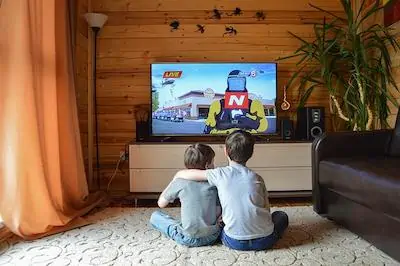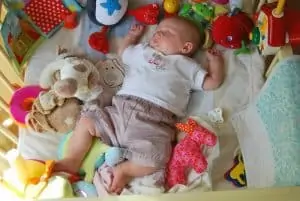As a kid and probably dating myself here, I remember we had cable TV when it was a relatively new thing. We were lucky to have it, for not everyone did.
I remember when MTV first came out. We were hooked.
My parents never seemed to care if we watched TV or hooked up the video games. Maybe that’s because we spent plenty of time doing other things like playing outside with our friends.
Today, many parents are concerned about how much TV their kids watch. Experts have said you shouldn’t let your kids watch too much TV. They say children younger than 2 shouldn’t watch it at all, but that was different in my generation.
They also say little kids shouldn’t watch soap operas or things like that. And while I agree the material isn’t exactly kid-friendly, I can’t help but laugh since my generation was largely exposed to these types of shows.
In any event, I’m a mama that is for TV in appropriate doses. I’ll certainly let it slide when someone is sick and stays home from school. I’ll also let it slide when it’s raining, and there’s nothing else to do.
But with toddlers, they have a one-track mind. And once they get into something, it’s a bit of a struggle to make them stop. That’s why YOU have to be the one to give your kid one of those cookies or brownies. You can’t just leave it accessible for them to take one. Because they won’t. They’ll just run wild with it.
When your toddler ignores you when they’re watching TV, this is one of those moments you’ve got to step in and nip it in the bud.
Ideally, if your child ignores you every time you try to speak to them while they watch TV, you should ensure there are no underlying conditions. Children with ADHD, autism, and other developmental problems may become too focused and unable to tear themselves away.

But if your child has none of those conditions, you’ll have to help your toddler with their TV addiction. Here’s how you can set them free!
Remove the distraction
You will need to stop the distraction for the TV (or any other screen device). First, turn it off. Then, ensure you get on their level and maintain eye contact while saying their name.
Please be advised that this will likely result in a tantrum, but you must stick to your guns. Let them flip out, and once they are calm, you can discuss why you turned off the TV and how they can still enjoy it without becoming part of the couch.
Give warnings that make sense
You want your toddler to do something. But they want to watch TV. It’s all in how you phrase your request to make it sound like an enticing option. For example, if your toddler picks at their food and whines about wanting to watch Paw Patrol or whatever show they love, you can tell them that if they eat all their food, you’ll permit them to watch a full hour of Paw Patrol (or other relevant show).
Though most toddlers do not grasp the concept of time, the best way is to tell them by how many episodes they can watch. If the show they love is 30 minutes in length and you’ll let them watch an hour more TV after eating, tell them they can watch 2 whole episodes of their show.
Always use that positive reinforcement
Toddlers are fascinating creatures simply because they really want to help. They want you to pay attention to them too. Knowing this, that puts the power in your hands. If you want to see more good behavior from your toddler, praise them for it.
Don’t be vague, though. Be specific with an example. In this case, with the TV, if your toddler comes to you when you call them in for lunch while they are watching TV, say something like, “You did a great job coming in for lunch on time when I called you to the table. I’m so proud of you for listening!”
Make TV rules and enforce them
Sit down with your toddler and talk to them about TV time. You want to set rules in place and make them clear, so your toddler understands what is expected of them. You can’t simply say, “Don’t watch too much TV.” A toddler doesn’t know what that means.
Sheesh, even if you told that to an adult, your idea of what “too much” means could drastically vary. Having a family meeting where you set rules and listen to one another is a good idea. Let your toddler make suggestions, and then once everyone is satisfied that they’ve been heard, make the rules.
You also need consequences. If your child breaks the rules, the consequences should be clear. This is where getting their input is important. When you give your child a choice between 2 options for outcomes, they feel like they have the power. But you’re still in control since you have presented 2 options you think are adequate.
It’s like asking your child if they want a salad or roasted veggies for dinner. Both options are fine by you and are nutritious, but your child thinks they’ve got control. Giving them some reasonable control at the toddler stage is wonderful because it helps minimize those power struggles and tantrums.
Once you integrate these tips, you should find getting your toddler to listen to you easier, even if it’s the middle of Paw Patrol. You can then allow them to watch a little more TV as they get bigger, though having them prioritize their shows as to what they don’t want to miss may also go in your favor.
This way, they won’t be glued to the TV for everything that comes on and will learn to look forward to their favorite shows while appreciating the luxury of cable TV.
Leslie Berry lives with her husband and two young daughters in Los Altos, California, where she loves helping other moms get comfortable with motherhood and embracing the insanity with facts peppered with laughs.
She loves eating too much sushi, exercising, and jamming out on her Fender. Read more about Leslie here.






